Peirce, Pragmatism and Race, Racism
Interview by Richard Marshall.
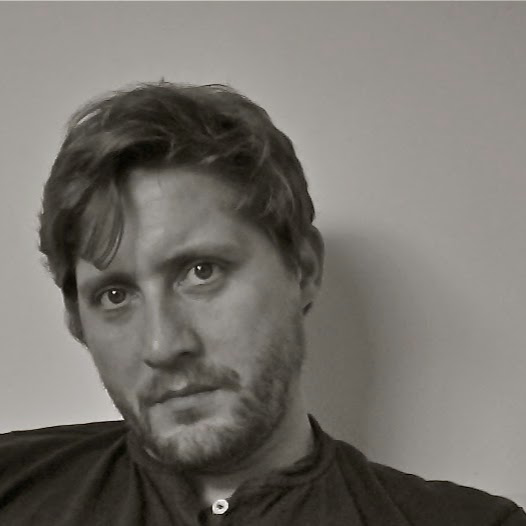
'...honestly, I’m on a hiding to nothing trying to explain anything about Peircian semiotics in a short snappy way. He worked on signs and sign theory for most of his life and at times it gets so complex its like trying to decipher the Voynich manuscript. Nonetheless, there is some agreement about what's going on.'
'To be honest, that book has been criticised a little bit by folks who I think see it as exemplifying a rather "white" approach to questions of race. I use a particular approach of saying that careful definition and clarity are important, that these are what analytic philosophers take themselves to be good at, and that they should get involved in this project. I can understand why people might not find that approach useful, especially in the current context in America where there needs to be a real focus on the differences in lived experience between races. From my point of view though, understanding what we can do by getting involved in projects of definition are important and do have a role.'
'Truth is, philosophy is very white and very male, and extremely middle class, but so are most other disciplines. And they all share the same kinds of problems that we do - sexual harassment, greater career obstacles for women and people who are racialised as other than white, full of shibboleths and mores that are alienating to those from working class backgrounds, unfriendly or indifferent to people with disability, and so on. And as far as I can tell, the reason has little to do with the alpha-nerd cliche that you characterise in terms of confidence or self-assuredness. It happens because the academy is just another social structure in a society that for the most part fucks-over women, people who are racialised as other than white, the poor and working class, and people with disability.'
Albert Atkinis currently working on the philosophy of Race and Racism, and has a particular interest in how the definition of "racism" impacts upon applied social and political questions. He also has ongoing interests in the work of C.S. Peirce and pragmatism which is where this discussion starts. He discusses Peirce and 'pragmaticism' rather than pragmatism, his architectonic, his theory of signs, reference, Frege's puzzle, Peirce's link with John Perry, his formal logic and metaphysics. He then discusses philosophy of race, how he thinks race should be approached by philosophers, the whiteness of the academy, why he thinks philosophy is white, male and wealthy, and what is to be done. Take away the rag from your face, now ain't the time...
3:AM:What made you become a philosopher?
Albert Atkin:In many ways it was by complete accident, and in others it was by meeting the right people at the right time. I’m from a Roma Traveller background which I identify very strongly with (people often call us “Gypsies” but I don’t much like the term). The Roma are a very deprived group in Europe and we have always been largely excluded from mainstream education in the UK. My mother, for example, barely attended school and was, like most Roma travellers of her generation, told she’d have to attend a school for children with intellectual disabilities. As it happens she’s a very bright person, but she ended up simply not going to school. Anyway, my mother and family didn’t want me to experience the many problems that come from being excluded from education and they persisted with getting me into school and keeping me there. It turns out that despite the difficulties that it presented, I did pretty well, stuck it out, and made friends with two really smart kids who were always intending to go to University. In my family, and for lots of Roma travellers at that time, just finishing school to sixteen was an unusual achievement so going on to further study and then University would never have been on the radar had I not had the friends I did.
In terms of philosophy, my friends and I were interested in politics and read things like Rousseau, and, as I recall, some of Emma Goldman’s writings on anarchy. We didn’t understand it, but a teacher pointed out to us that this was all just philosophy and you could study it at University. I applied to study philosophy, went off to University and hated it. I dropped out after a year, because I felt out of place, I missed my family, and it was just alienating - I wanted to study political philosophy and ethics but whatever we covered, I just didn’t have any of the intuitions and insights I was supposed to have. It felt like I’d made a massive mistake and I was glad to get out of there. After a year or so of drifting, I enrolled at my home town university in Nottingham to give it another shot, but I soon started to feel the same - I didn’t identify with my fellow students at all, and I was about ready to throw it in again. Then I studied a philosophy of language course with Alex Miller who is now a Professor at Otago in New Zealand. The content gripped me in a way that my “value” courses hadn’t, but in many ways Alex was the real difference maker — a no bullshit working class Glaswegian, who cut through all the things that made me feel alienated at University. Alex is an excellent philosopher and watching him at work, it just became about the philosophy. After that, all I wanted was to keep doing philosophy. I think that spark could have easily been extinguished, but I was lucky in that I ended up going to Sheffield to work on Peirce and the Philosophy of Language with Chris Hookway and Jenny Saul. It was a wonderful place to complete a PhD, and they were both very supportive, very nurturing, supervisors. I also discovered from Jenny’s work that I could work on abstract “dry” questions about language or meaning, but I could also work on what seemed like important political questions that were personally significant. I could even bring them together. In short, my path into philosophy was a lot of hard work, but there was luck too in having friends for whom University was always on the cards, and teachers who were inspiring and supportive when I most needed those things in order to continue.

3:AM:One of your interests in the philosophy of Charles S. Peirce. He’s one of the great American Pragmatists isn’t he? Whereas John Dewey and William James are known outside of philosophical circles, Peirce might not be quite as well known. Can you briefly introduce us to Peirce and sketch why he’s significant?
AA:Yes, Peirce is considered to be one of the great pragmatists, indeed, William James credits him as the founding figure. He was one of the first American philosophers to make an impact upon philosophy and in many ways his work and interests resonate quite strongly with the concerns that mark early 20th century philosophy — logic, language, meaning, science. Peirce was an accomplished scientist and he did lots of work in chemistry, physics, and measurement. Unsurprisingly then, he is very interested in the nature of science, inquiry, meaning and representation, and logic. He developed a quantifier logic around the same time as Frege, developed multi-valued logics well in advance of Post and Łukasiewicz, and developed an account of meaning that was something of a fore runner to verificationism - people like Fiegl and Ayer identify his work as an early precursor. At the same time as having this interest in logic and scientific progress, he was also a very diligent student of the history of philosophy and was influenced by Kant and medieval scholastic logicians. This tends to mean that it is very hard to read him as a straight proto-verifcationist or analytic philosopher, and his views are always much more nuanced than they first appear to be. My real interest in him though comes from a side effect of his lifelong struggle to find secure academic employment. Unlike James or Dewey he was unable to find work in a University - he had a bad reputation and University administrators were resistant to employing him despite his having strong backers. This tends to mean that most of his work, especially late on, was produced in relative isolation and unpublished at the time of his death. As we work through this unpublished material we find all kinds of interesting subtleties in his ideas that mean his work remains relevant and useful.
3:AM:You stress that Peirce worked to develop what you call a broad architectonic scheme, and this came from his deep admiration for Kant and Aristotle. Can you sketch what this term implies and what his architectonic is comprised of?
AA:Truth be told, it’s a pain to try to "sketch" anything that Peirce says. But in reasonably simple terms, the architectonic is just Peirce’s view of what the different branches of knowledge and understanding are, and how they are related to each other. The idea that the different branches of knowledge all hang together in some way isn’t too strange an idea; you find people making claims about modern science to the effect that that chemistry is more fundamental than biology, and that physics is more fundamental than chemistry, for instance. Peirce, like lots of his predecessors, thought it was a useful enterprise to explain why and how all branches of thought, including philosophy, hang together. For Peirce, Mathematics was the most fundamental of all subjects, then comes philosophy, and then the physical sciences, and so on. He also thought you could organise particular fields of thought in a similar way, by noting which sub-fields depend on other sub-fields for their “general principles”. So, within philosophy itself, he thought phenomenology was the most fundamental in so far as it was simply the study of whatever is ubiquitous in experience. He then proposed what he called the normative sciences - ethics, aesthetics, and logic - as the next most fundamental field, and finally metaphysics.
A lot of what he says about his architectonic system can seem pretty old fashioned when we read it now, but I think its really useful to use his views on architectonic as a way of organising his entire philosophical picture and for trying to make sense of how it develops over the course of his philosophical life.
3:AM:What are the main components of his pragmatism?
AA:For most card carrying pragmatists from William James onwards, pragmatism is a kind of meta-philosophical stance; a way of doing of philosophy. For Peirce, pragmatism was really just a maxim and a methodological tool for making concepts and ideas clear. He thought that if you wanted to really understand a concept fully, you not only had to do all of the definitional work that philosophers normally do, but you also need to have a proper sense of what the practical upshots of using that concept would be. For Peirce, this focus on practical differences is a way of both giving a full account of what we mean when we use particular terms, and as a way of identifying whether a particular dispute is based on real differences or not. For example, he thought that there was no practical difference between protestant and catholic claims about taking the Sacrament since in terms of practical effects, the two groups had the same kinds of experience. He thought you could apply this to philosophical disputes too, and in many cases simply dissolve them. He changed some of the details of his views later on, especially since he didn't like what James and others had done with his pragmatic maxim. He always thought it was just a maxim for logic and inquiry, and that James and Schiller had turned into what he called a "speculative philosophy". He decided not to call his view pragmatism, but "pragmaticism" because it was such an ugly term that no-one would bother to kidnap it and misuse it. He was right about that.
3:AM:His theory of signs is his theory of meaning and he places great importance on interpretation as he wrestled with his ideas. You suggest that he developed three accounts of his theory. Before telling us about the theory, can you explain what problem such a theory is trying to solve?
AA:I'll give it a go, but honestly, I’m on a hiding to nothing trying to explain anything about Peircian semiotics in a short snappy way. He worked on signs and sign theory for most of his life and at times it gets so complex its like trying to decipher the Voynich manuscript. Nonetheless, there is some agreement about what's going on.
So, what's his problem? Well, he starts out writing about signs as part of his very early work rejecting Cartesian ideas about thought. So far as Peirce was concerned, Cartesian arguments relied on some pretty questionable ideas about intuitions (or basic thoughts), about introspection (or things not based on external reality), and about incognizable concepts (things beyond our grasp). He developed a model of thought using signs that made these three Cartesian assumptions unavailable. For Peirce, a sign must have three elements: the sign-vehicle (which is just the signifying component), an object (which is just whatever is signified), and an interpretant (which is a further sign that interprets or develops the signifier/signified relationship). What this means is that every sign is the interpretant of some previous sign, and every sign has some further sign as its interpretant. Every sign also has an object. This makes "intuition" impossible because there are no basic or first signs - there’s always a preceding sign. It makes "introspection" impossible because every sign has an object external to it. And it makes "incognizables" impossible, because there is always some further sign to be had. In short, his first "problem" and reason for developing a sign theory was how to develop an account of thought and inference that captured his objections to Cartesianism.
3:AM:So can you sketch for us the main components of these three accounts so that we get a clear idea of how he thought a solution could be found?
AA:His semiotic very quickly stopped being driven by the need to solve familiar philosophical problems. His later developments came more from his need to give a complete account of how signs could represent objects and determine further signs. He had an incurable need to taxonomise everthing into submission. All three of his most clear accounts of signs maintain the basic sign/object/interpretant structure I just mentioned, although later on he thought that there could be two types of object and three types of interpretant for every sign. Where the complexity comes is from the different types of signs he thinks this leads to. In the early anti-Cartesian account I mentioned above, he only noted three types of sign - signs which are interpreted as signifying their object in virtue of likeness (which he called Icons); signs which are interpreted as signifying their object causally (which he called indices); and signs which are interpreted as signifying their object by law or convention (which he called symbols). What the later accounts do is increase the number of sign types and terminology in much greater detail. If you're going to explain every possible type of thought or instance of representation, you’re going to need a lot of sign-types. And by the end, Peirce had identified quite a lot.
3:AM:An interesting connection you make is between Peirce’s theory of signs and his multi-level account of meaning and contemporary theories of Critical Referentialism. I guess to start with it would be useful to quickly say what referentialism is and how it tends to be contrasted with the alternative, descriptionism, and what these alternatives are trying to do.
AA:The idea is that we want to understand how reference might work for certain kinds of word - names, and indexicals, for instance. On one view, the meaning of a proper name, “Aristotle” say, is just the thing it refers to - Aristotle. This would be a broadly referentialist view. On another view, the meaning of proper name is given by some description of the qualities of its bearer - "the Stagirite philosopher who was a student of Plato, and teacher of Alexander of Macedon" for example. This would be a descriptivist view. Obviously these are very simplistic accounts, and both approaches have much more sophisticated renderings than this.
3:AM:How does Peirce theory deal with two puzzles of reference: Frege'sPuzzle and the Same-Saying phenomenon for indexicals?
AA:So, referentialist and descriptivists tend to have varying fortunes in explaining some common puzzle cases for reference. In a paper I wrote a few years ago about using Peirce's account of signs in contemporary philosophy of language I used Frege's Puzzle and a Same Saying puzzle for indexicals as stalking horses. Just to use Frege's Puzzle as an example, descriptivists are good at explaining why two sentences with co-referential terms differ in cognitive significance for us, whereas referentialists are seen as having a problem there. When we compare (1) "Hesperus is Hesperus" with (2) "Hesperus is Phosphorous", for the referentialist it looks as though the two sentences say the same thing in virtue of the fact that "Hesperus" and "Phosphorous" refer to the same object. The descriptivist however is able to explain why (1) is trivial (same descriptions attached to "Hesperus") and (2) is informative (different descriptions attached to "Hesperus" and "Phosphorous". I think that because Peirce's later accounts of signs actually allow for multiple levels of content - he suggests multiple kinds of interpretant - he can deal with all the puzzle cases in a much more even way. The cases that the descriptivists struggle with, he can give an answer that resonates reasonably well with the referentialist. Cases that the referentialists struggle with, he can give an answer that resonates reasonably well with the descriptivist.
3:AM:So, you link Peirce up with John Perry's work. Can you explain what the connection is and does that mean that Peirce is an overlooked figure who should be taken more seriously by contemporary philosophy of language and linguistics?
AA:Since the late 1990s, John Perry has proposed an account of reference that he calls Critical Referentialism. What it does it give us multiple levels of meaning for any given term and solves many of the standard puzzles in much the same way that I suggested Peirce's later account of signs does. I really like John Perry's work in the philosophy of language, and when I was writing my thesis I attended a conference in Donastia where he was giving a keynote. He outlined all of this in his paper and I found myself thinking throughout, "this sounds like Peirce". I then read Perry's book "Reference and Reflexivity" which had just come out and found him talking about how Arthur Burks' ideas had contributed to his own views. It turns out Burks had read a lot of Peirce and took himself to be correcting some errors in Peirce's work on indexicals. Perry was then correcting some errors in Burks' work. As it happens Peirce's later account of signs noted and corrected those same errors. So I wrote a paper about it. Does that mean we should take Peirce more seriously in contemporary philosophy of language? Probably not in any simple way, no. His concerns are quite different from those of contemporary philosophers of language and I think my approach in those papers was quite wrong. There are philosophers of language who are quite sympathetic to some Peircian ideas - Francois Recannati for example - but I think to push for a Peircian turn in contemporary philosophy of language would probably require something much less piecemeal than the approach I've taken in those papers, and opt instead for something far more drastic. A Peircian philosophy of language would probably look very different to anything we're currently doing.
3:AM:Can you say what Peirce's account of Formal Logic is - especially his work on Graphical Logic. Is this of importance to contemporaries?
AA:I don't know if I can really answer this here. I suppose his formal logic is, for the most part, close to what we understand about the early development of mathematical logic, so it would be quite familiar to most people. Where it starts to get less familiar is with the graphical logic. Peirce thought deductive inference had a dynamic element and this could be best captured through the use of logical diagrams. The result was that in later life he produced a series of what he called Existential Graphs. The Alpha Graphs dealt with propositional logic, the Beta Graphs with predicate logic, and the Gamma Graphs with modal and second order logic. He was developing all this between the late 1890s and his death in 1914, and its remarkable how much modern stuff his work pre-empts. Should contemporary logicians be engaging with it? Yes. Some already are, but where I think his graphical logic is of most interest is in terms of applied logic. I think diagrammatic reasoning has all kinds of applications in fields like artificial intelligence, machine reasoning, and visual processing. Peirce did some very complex and advanced work here and we still don't have a full understanding of it.
3:AM:And how should we understand his metaphysics, which you suggest has not been well understood?
AA:I don’t know how best to understand his metaphysics. I’m working on it. For what its worth, while most of it seems really weird and very whacky - his friends thought he’d lost his mind, and many Peirce scholars still don’t know how to reconcile much of his metaphysics with the rest of his philosophy - I do think we can make sense of it. My feeling is that seeing him as inclined to naturalise metaphysics and include it within the structure of science is the best approach. Contemporary philosophers such as James Ladyman or Anjan Chakravatty already think we should develop a naturalised metaphysics that is tied to science and scientific data, but a Peircian account would probably look quite different to their work. Like I say, much needs to be done.
3:AM:Switching away from Peirce, another interest is in the Philosophy of Race. Your book aims to make the idea of race and racism precise. Even though race doesn't track anything science tracks is it still real in that it tracks social realities? And if social, what do you take it to be tracking and does this differ depending on different societies and histories - so that, for example, the USA and the UK will track different realities dependent on their differences?
AA:Yes, I am very interested in the philosophy of race although I wouldn’t say that my book aims to make the ideas of race and racism precise. It’s a short book which was never intended to do that, indeed, I’m not sure that’s something you can really do - they are quite nebulous concepts. Its true that I do think philosophy can play an important role in helping us to keep clear about what concepts we’re using, and that we should be encouraging careful thought about these things, especially when it comes to policy making and the social impact of race and racism, but my book doesn’t do much more than trace out some of the contributions that philosophers have already made, and try to encourage a greater engagement with questions of race.
To be honest, that book has been criticised a little bit by folks who I think see it as exemplifying a rather "white" approach to questions of race. I use a particular approach of saying that careful definition and clarity are important, that these are what analytic philosophers take themselves to be good at, and that they should get involved in this project. I can understand why people might not find that approach useful, especially in the current context in America where there needs to be a real focus on the differences in lived experience between races. From my point of view though, understanding what we can do by getting involved in projects of definition are important and do have a role.
To illustrate, I have a paper included in a collection of articles on the condition of Roma in Europe. The collection "We Roma", is edited by Daniel Baker and Maria Hlavajova and has contributions from both Roma and Non-Roma. In my paper, I try to make it clear that there are official definitions of Roma groups which are designed to identify us with properties that can be (and are being) removed — its definitional genocide. I argue that we need to be involved in defining ourselves, to own the definitional project, otherwise we, as a group, are doomed in Europe. Given the surge in far right sentiment across Europe I worry that we may already be doomed, but while ever someone else controls whats defines us we can simply be erased by fiat. Now, perhaps this borrows the tools of "white" mainstream philosophy by talking of definitions and concepts and precision etc. but I don't feel as though my philosophical work is especially tainted because of that. Its just another aspect of the many ways that philosophers can and are doing important work on such issues. This doesn't answer your question very directly though, so let me return to the point!
It’s no secret that, despite what many people suppose, race doesn’t line up well with science. However, race is still socially real, and I take it to be tracking different racial projects — both new ones and the residues of old ones. Given that racial projects vary from place to place and time to time, our racial identities are constructed in different ways accordingly. Our racial identities are given against the backdrop of those projects and those constructions. And of course, that has a profound effect on how we experience the world around us. I also think that the continued existence of racial projects and the related effects on our experiences of being racialised mean we do need to keep hold of the concept of race for the time being. Its still very real.
3:AM:So what do you think the philosopher’s job is when facing the issue of racism? For some, it might not strike them as philosophically interesting - after all, once you've got the point it’s a very bad thing then what's left but to get engaged and take non-philosophical action to oppose it?
AA:There are all kinds of important philosophical questions up for grabs with regards racism. You say once we've got the point that it’s a very bad thing, but we have to ask why its bad? Is it because its some sort of moral failing to be a racist? Is it because it results in unequal and unjust treatment within our social and political structures? Some other reason? Even setting aside those questions, there’s lots of important work to do figuring out exactly what racism is. Most of the time people think racism is simply down to individual belief and comes from a place of hatred or contempt - that’s why so many people are resistant to being called racists. But there are lots of other kinds of racism too that go far beyond any individual belief or action. Again, philosophers are good at trying to make different meanings clearer and at helping us to see when we’re talking at cross purposes. I also don't see why taking action against racism has to be non-philosophical either. Of course, we have to avoid letting our discussions become esoteric and of concern only to other philosophers, but doing good philosophical work here ought to be at least as much about changing things beyond academia as it is about getting a few papers published.
3:AM:Of course a striking thing about the academy and philosophy is how white and how male it is compared to other subjects in the humanities. Do you think there is something about philosophy itself that causes this - perhaps it has a deviant appeal that attracts super-confident people more than those who are less self-assured or feel marginalised and already under increasing pressure to conform if the want to succeed and who therefore avoid it for more socially acceptable and safer less marginalising subjects, such as history. (I realise that even in posing a question like that I’m probably offending or outraging all sorts of people but lets see where this goes!) What can be done?
AA:I don’t agree that philosophy has a problem that other disciplines don’t. Take your example of History. A report from the RHS last year noted that only 20% of History Professors in the UK are women: about the same as the number of women holding senior positions in The City. Philosophy is probably a bit worse on those kind of indicators, but History isn’t exactly knocking it out of the park either. Truth is, philosophy is very white and very male, and extremely middle class, but so are most other disciplines. And they all share the same kinds of problems that we do - sexual harassment, greater career obstacles for women and people who are racialised as other than white, full of shibboleths and mores that are alienating to those from working class backgrounds, unfriendly or indifferent to people with disability, and so on. And as far as I can tell, the reason has little to do with the alpha-nerd cliche that you characterise in terms of confidence or self-assuredness. It happens because the academy is just another social structure in a society that for the most part fucks-over women, people who are racialised as other than white, the poor and working class, and people with disability. I honestly think claims that there is something intrinsic to the discipline that means it attracts a particular type of person (who tends to be male and white and wealthy) is weak tea. Philosophy has a problem, but it has a problem because the world is a shitty place, and the most comfortable and interesting jobs tend to be populated by the most privileged. As much as people complain about academia, it’s a pretty cushy gig. Why are there so few black academics? Because for the most part, society is racist. Why do we struggle to get gender equality? Because for the most part, society is sexist. Why are working class people underrepresented in academia? Because for the most part society makes it easier for the privileged to succeed. Why are people of disability made invisible in academia? Because for the most part society is ableist. Philosophy may be a particularly troublesome and resistant pocket of that society, but it’s hardly the last or biggest hold out.
You also ask, what can be done? Well, we can obviously try to make the places we work more equitable, try to make ourselves aware of the inequities and of all the things that lead to inequitable treatment and try to counteract them. But there is much more to it than this. If you take History as an example again, the RHS will tell you they’ve been trying to improve gender equality for the last thirty odd years. That’s why, despite being better than philosophy, they’re pretty disappointed with their results. We have to play catch up to that within the discipline, but really, we have to do more to rectify the inequality we find in society at large. I mean, I don’t know if there are any other professional philosophers who self-identify as Roma Traveller, but I don't imagine there'd be too many of us. However, I'm not going to worry about that for the time being because the greater concern for me is seeing Roma children given the proper opportunities to finish school, get access to good health care and fair treatment in the judicial system. The problem goes far beyond academia. There's much we should and can do within philosophy, but we also have to do more outside of the academy too.
3:AM:Five books?
AA:OK, five books:
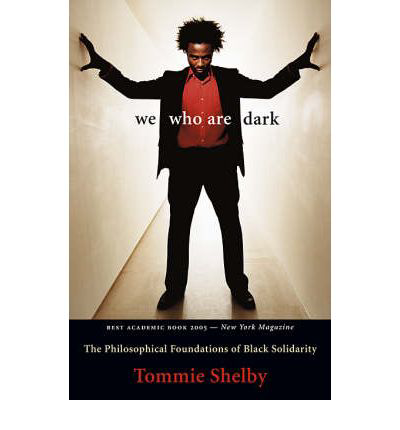
Tommie Shelby “We Who Are Dark: The Philosophical Foundations of Black Solidarity”
This is a brilliant book. It is a wonderful piece of philosophy, but it also reaches out beyond the academy and addresses questions about how Americans racialised as black can find common purpose to fight for social justice.
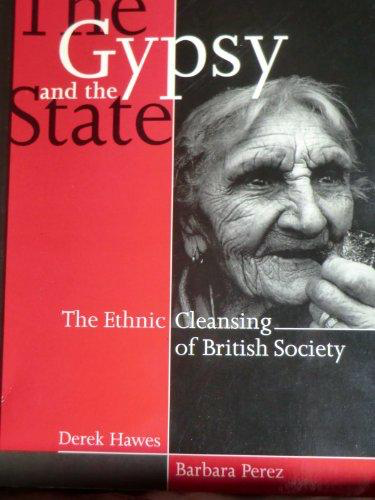
Derek Hawes and Barbara Perez “The Gypsy and The State: The Ethnic Cleansing of British Society.”
Not philosophy, more anthropology and sociology I suppose. But what Perez and Hawes' capture in this book is the way that social policy in the UK from the late 1960s to the early 1990s impacted on Roma Traveller groups. It does a pretty good job of capturing many of the experiences of my family during that period from an academic perspective. Those experiences certainly influence my philosophical world.
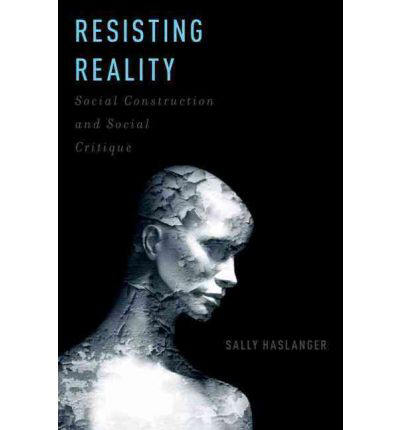
Sally Haslanger “Resisting Reality: Social Construction and Social Critique”.
I like the way that Sally Haslanger does philosophy. I like her ideas about how ameliorative projects might guide how we think of social identities. I disagree with some of the details, but her work is clear, provocative, and challenging. This collection of papers is a real gem.
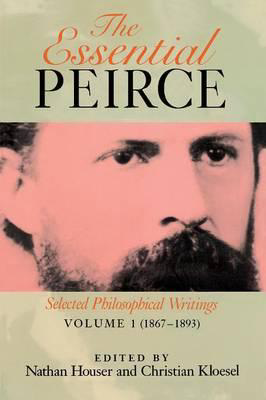
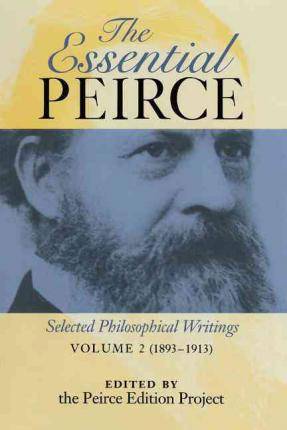
Charles S. Peirce The Essential Peirce Vols 1and 2
I know its a cheat because I’m lumping two books together, but you have to read some Peirce. These short collections produced and edited by the Peirce Edition Project at Indiana University are excellent.
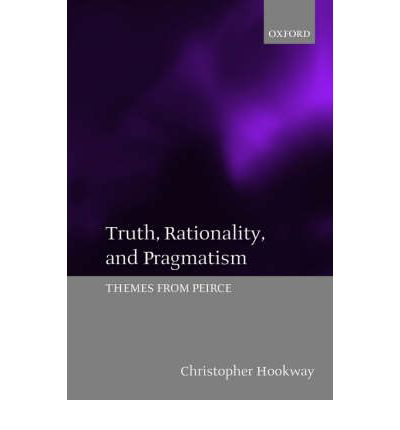
Chris Hookway Truth, Rationality, and Pragmatism.
Chris Hookway was one of my supervisors at Sheffield, but even allowing for some bias, I’d argue that the way he does Peirce is the way Peirce should be done. I think Hookway is an under appreciated philosopher all round, but his Peirce scholarship is peerless and anyone interested in Peirce should read Hookway.
ABOUT THE INTERVIEWER
Richard Marshallis still biding his time.
Buy his book hereto keep him biding!